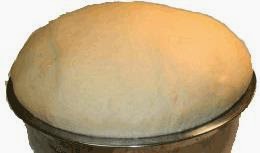Mustard and Bread
Matthew 13:31-35
31He put another
parable before them, saying, “The kingdom of heaven is like a grain of mustard
seed that a man took and sowed in his field.
32It is the smallest
of all seeds, but when it has grown it is larger than all the garden plants and
becomes a tree, so that the birds of the air come and make nests in its
branches.”
33He told them
another parable. “The kingdom of heaven is like leaven that a woman took and
hid in three measures of flour, till it was all leavened.”
34All these things
Jesus said to the crowds in parables; indeed, he said nothing to them without a
parable.
35This was to
fulfill what was spoken by the prophet: “I will open my mouth in parables; I
will utter what has been hidden since the foundation of the world.”
If
you’ve ever planned a surprise party for anyone you know that “now but not yet”
feeling. You’re sending out the invitations, planning the food, making sure no
one ruins the surprise, and waiting with anxious anticipation for the big day.
For you, the party planner, the details are all right in your face. But the
party hasn’t arrived yet. As Jesus continues to teach His Disciples about the “here
but not yet” aspect of His Kingdom, he uses two more fascinating (albeit brief)
parables to help us understand this more clearly.
His
first object lesson revolves around the mustard seed and its resulting plant.
The first thing we must note is that this is not a botany lesson. It is a
Kingdom parable. Much has been made by non-believers about the fact that the
mustard seed is in fact not the
smallest among seeds. There are smaller. And there are very few mustard plants
that grow into a large tree. Most of them resemble bushes (which can grow
fairly large) or even flowering weeds. Doesn’t the Creator of the Universe know
any better? Of course He does. But this is a parable and parables quite often
use hyperbole. (We will find more examples of this later in our study of
Matthew.)
Pliny
the Elder was a Roman author who lived in the first century. He wrote about his experience with the mustard
plant in his encyclopedic Natural History:
“Mustard… with its pungent taste and fiery effect is extremely beneficial for
the health. It grows entirely wild, though it is improved by being
transplanted: but on the other hand when it is sown it is scarcely possible to
get the place free of it, as the seed when it falls germinates at once. (Natural History 19, page 170-71)
Using
this common everyday object, Jesus points again to the fact that within God’s
Kingdom there are many things for which we have to wait. The farmer sows that
little tiny seed (if he wants a problem on his hands, according to Pliny) and
then has to wait for it to grow into a fruit bearing plant. Does that farmer
possess a mustard tree (or bush, or plant)? Yes, but it still might be only 2
inches tall or even under the dirt! I do find it interesting that just a little
mustard goes a long way and actually becomes pervasive. God’s Word is just the
same. If allowed to grow, it becomes pervasive.







Comments
Post a Comment